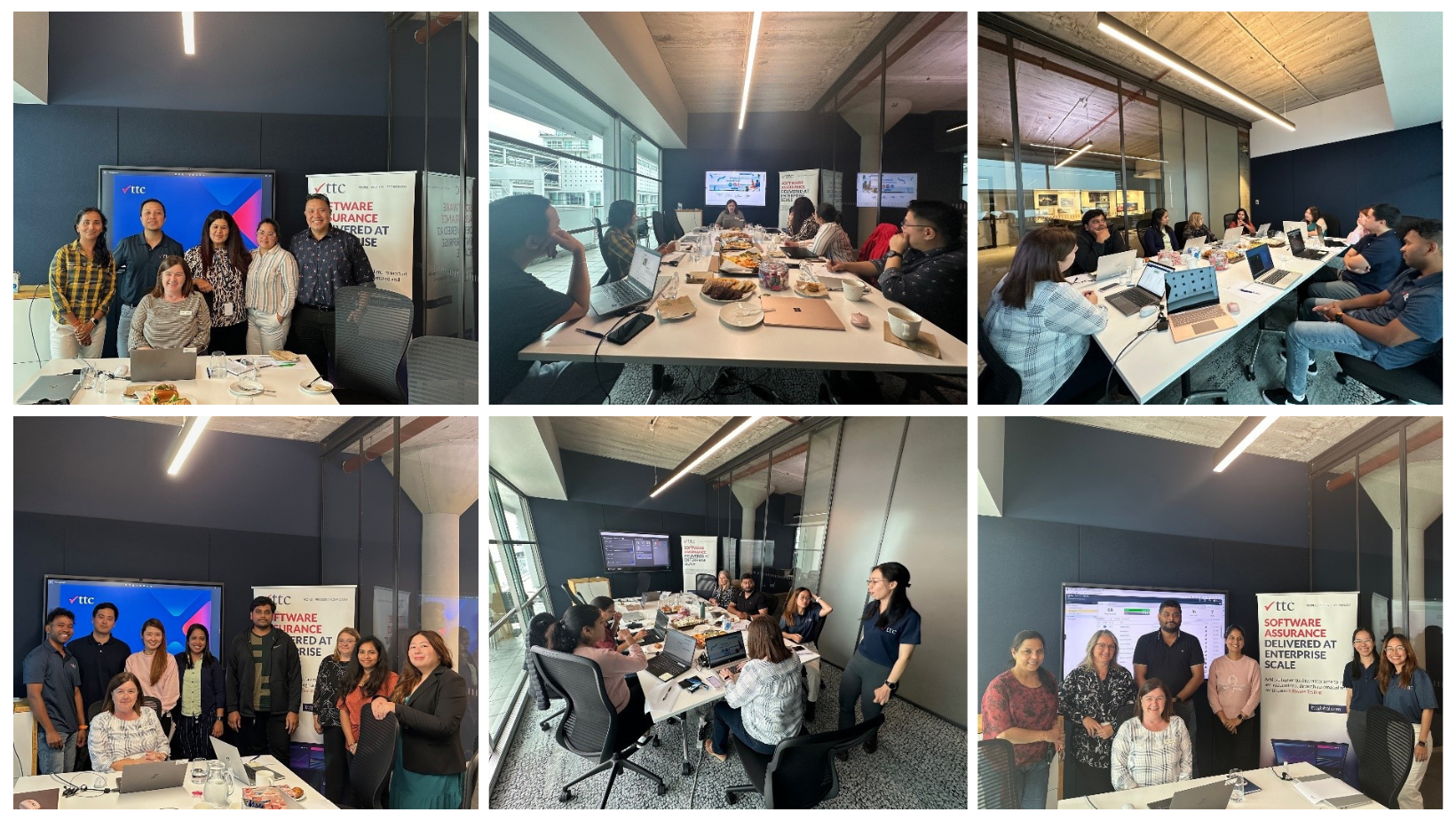Exploratory Testing Workshop – Auckland Edition
TTC Auckland hosted a series of workshops led by Dawn Hall
Last week, TTC Global hosted a series of Exploratory Testing Workshop sessions in Auckland.
TTC aims for efficient, high quality software testing with minimized administrative tasks involved. We don't neglect documenting our tests, but we always seek new ways to help us concentrate on exploratory testing and test execution.
As we did in our Taranaki Test Professionals meetup, TTC’s Dawn Hall has shown our attendees how they can record testing and how these recordings can be used to:
- Create an auditable and traceable record of your testing.
- Generate documentation for your testing (that can also be used as a training guide for the application).
- Be a basis for test automation.
- Not have to write a test script 😊

During this workshop, Dawn highlighted how, usually, manual testers use up to 60-70% of their time on analysis, test planning, and creating detailed step-by-step test scripts. They also typically end up only spending 30-40% of their time on test execution. By focusing on lean testing and using the right tools, we taught the workshop participants how they can improve this process, with test planning taking 30% of their time and test execution increasing to 70% of their testing efforts. This is where testers add the most value.
This means we don't cut down the time for testing, but by using most of the effort on running the tests, we have more thorough coverage and can pay attention not only to high-risk areas in testing, but we can also cover medium and possibly low risk areas. With this approach, the detailed test documents can also benefit Developers by reducing the feedback loop on defects, Automation testers (and if the tools support it, even generated test automation scripts that can be further improved), and even the Change team by reusing the detailed test documentation for their user guides.
The attendees had a great time doing exploratory testing and seeing all of their testing activities automatically documented without the need of typing each and every step. They were able to generate the following:
- Documented test scripts with detailed step by step descriptions and screenshots via PDF, Word, and HTML
- Generated automated test scripts with Selenium Java, C#, and Python as programming languages.
The workshop was conducted using Tricentis qTest – a huge thanks to Tricentis for their support in enabling this workshop to happen. And whilst this workshop was done with qTest, we have also covered how there are a number of Exploratory Testing plug-ins out there that are compatible with other test management tools, albeit not as feature-rich, such as Xray, Azure DevOps, and TestRail explorers, to name a few.
Watch out for more meetups and events by TTC Global. If you are interested in attending future meetups or events, be sure to stay up to date with our events page.
If you are keen to present a topic or need some support / assistance on exploratory testing and tooling, please contact us.




